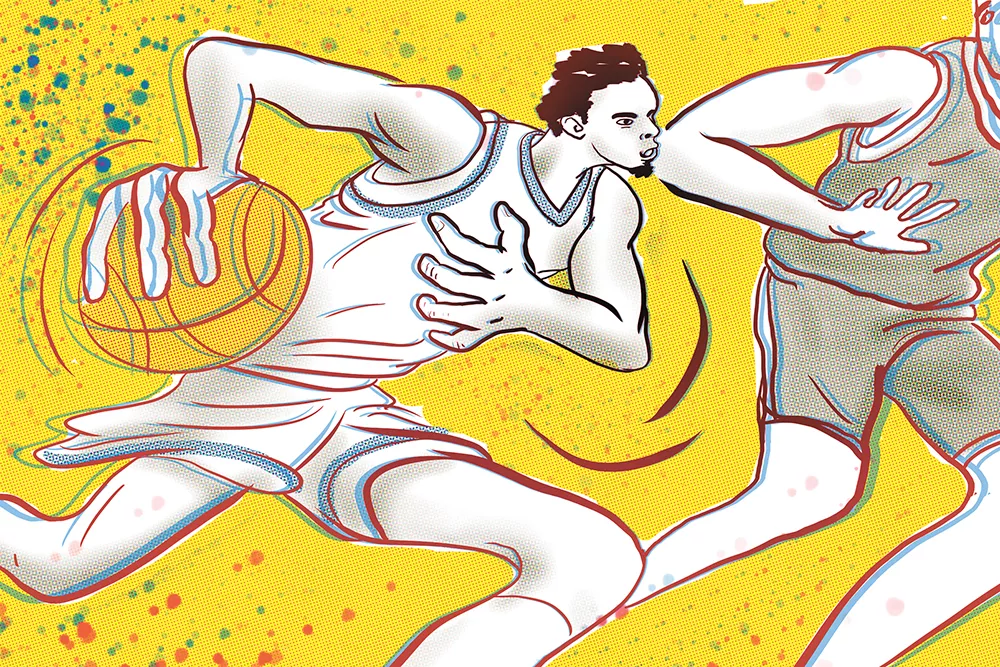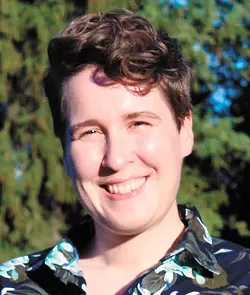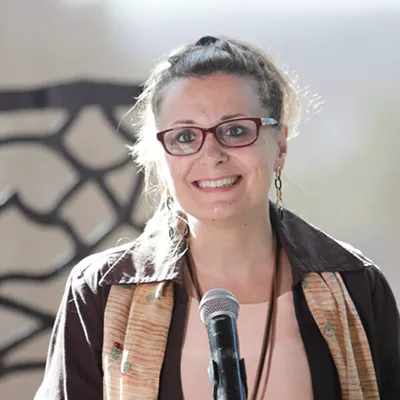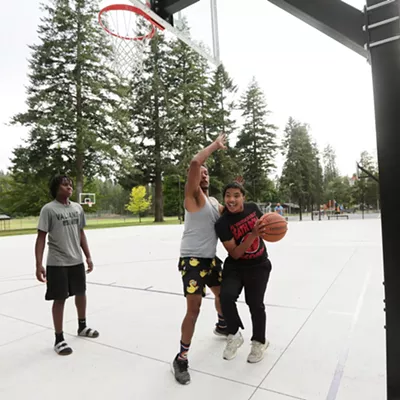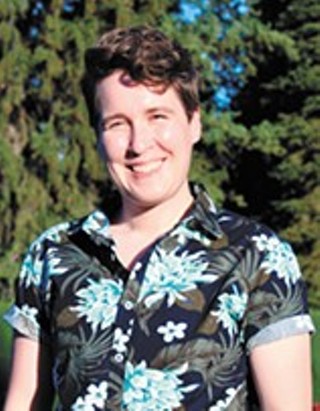A few months ago I checked an item off my Spokane bucket list. I attended my first Gonzaga men's basketball game after years of desperately waiting for one of those elusive tickets to appear on my doorstep. Thanks to the generosity of some friends who knew someone, who knew someone, who knew someone, I finally got my wish.
As I walked into the McCarthey Athletic Center, toward our seats, located directly behind the Gonzaga players bench, I immediately sensed this experience would spoil me for life. We arrived early to watch warm-ups, and while I catch plenty of basketball on television, I was unprepared for the sheer magnitude of energy emanating from the Gonzaga student section. Dressed in red, standing on the risers, hundreds of college students jumped up and down, fists in the air, chanting to Zombie Nation's "Kernkraft 400" in perfect unison, with enough enthusiasm to shake the building.
In the middle of a dark November night I felt imbued by the crowd's intensity. Is this what it is like to join a cult, I thought? Probably; but who cares!? It was as impressive a sports spectacle as I've seen in my life and reminded me of why I love sports in the first place. There is something deeply comforting about watching people use their voices to create an entity larger than any one person in the system, to connect with one another through the positive joy of shared experience.
About once a month, I drove to the Garland District to visit a massage therapist as part of my adult routine called "My Body Now Requires Regular Care to Function Properly." Though on the surface it would appear that my massage therapist and I have little in common, with her office populated with a million healing crystals, and New Age music percolating in the background, we discovered during the course of my first massage that we both love sports. She is, in fact, a die-hard Gonzaga basketball fan.
She routinely declares mid-massage, to some imagined critic in the room, that if you book appointments with her on Thursday evenings during basketball season and don't want to listen to the games on the radio, then you should find another therapist because clearly you don't appreciate an essential component of Spokane living.
I have friends who use the word "sportsball," to describe major sports spectacles: March Madness, the World Series, World Cup or Super Bowl. "Oh I forgot that it's a sportsball weekend," they might say with thinly veiled derision when Twitter goes wild over an interception or clutch three-pointer. It is ironic because most of the people I know who use the word "sportsball" are, themselves, deeply passionate about very niche subjects: dystopian fiction, Bachelor in Paradise, quiche. And they guard their fandom from attack with the ferocity of a bear defending her cubs.
What my "sportsball" friends don't understand is that keeping a working encyclopedia of sports knowledge in one's head is like owning a secret passport to other people's lives. One moment I'm talking with my massage therapist about Josh Perkins' jumpshot and the next I'm talking about her upcoming Caribbean cruise with her elderly mother, or what it was like to grow up in Cheney decades ago. Sports are communal ground, a way of saying, if nothing else, we share this weird enthusiasm for human cooperation and teamwork and physical transcendence; if we start there, we just might find that we have much more than that in common. ♦
Aileen Keown Vaux is an essayist and poet whose chapbook Consolation Prize was published by Scablands Books in 2018.

